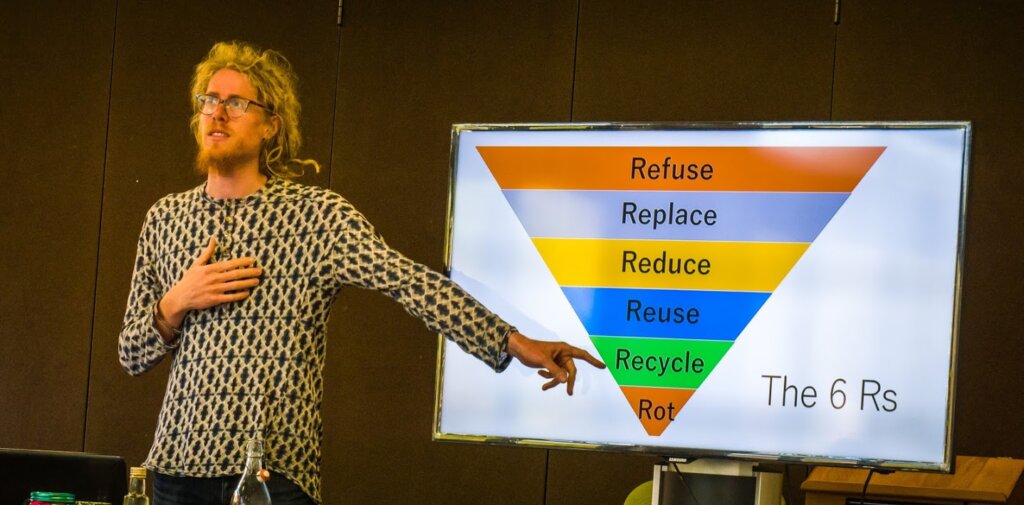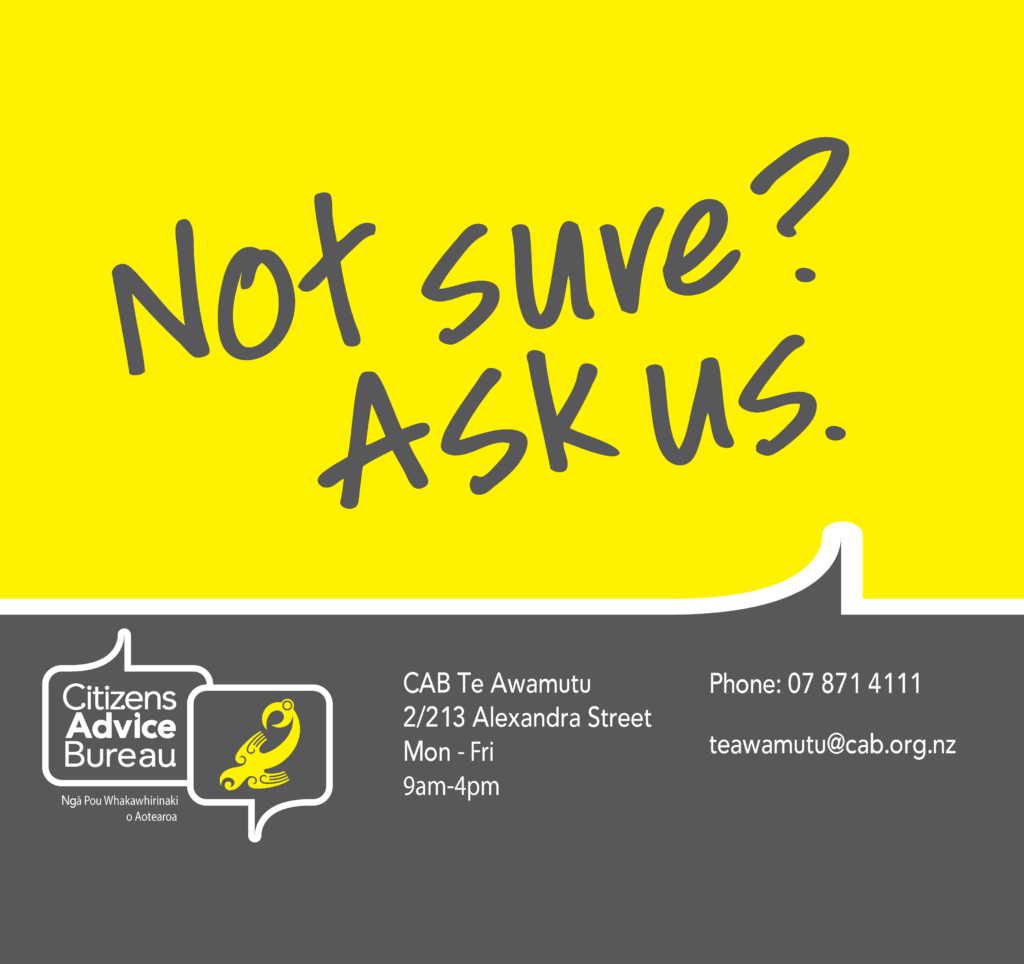As councils consider an application for a plant to turn trash into energy near Te Awamutu, Benjamin Wilson talks to someone who advocates a system which concentrates on not creating waste in the first place.
New Zealand should be investing in ways to reduce waste, instead of ways to burn it, says a waste free expert.
“With waste to energy, it is a way of dealing with waste that has already been produced, it is not a way of actually preventing waste in the first place, which is what we believe the focus should be on,” said The Rubbish Trip co-founder, Liam Prince.
Prince is a researcher for Zero Waste Network Aotearoa and has been living virtually waste free for seven years.

The Rubbish Trip co-founder Liam Prince.
He and partner Hannah Blumhardt founded The Rubbish Trip in 2017, after they adopted a waste free lifestyle in 2015. Through The Rubbish Trip, the Wellington couple have delivered over 400 presentations on the various ways to reduce waste across New Zealand.
“To summarise it really broadly, the overarching philosophy or mantra that we follow is what is known as the waste hierarchy. When people talk about how individuals can reduce waste, they talk about the three R’s, but we follow the six R’s,” said Prince.
They are refuse, replace, reduce, reuse, recycle, and rot.
“Firstly, we think ‘can we refuse it? Can we just say no to a product? Do we actually need it in our lives?’ And then we go from there. Can we replace it with something that is not wasteful? Can we reduce? Or can we find something that is reusable, if not recyclable instead?”
Prince says waste to energy plants, like Te Awamutu’s proposed Paewira, for which resource consent is being processed, disincentivise waste minimisation and act as band aids to the real problem of waste production.
Proponents of waste to energy plants have argued that they help to deal with unavoidable waste that cannot be recycled.
But Prince believes these companies alongside the government should be investing in ways to reduce the production of waste, instead of accepting that waste is unavoidable and then investing millions of dollars to deal with it.
“Our worry is that all the effort that is invested in the incinerator is diverted from efforts to actually address the problem,” Prince said.

A digital illustration of Te Awamutu’s proposed waste to energy plant.
Waste to energy plants produce a large amount of carbon dioxide and require a steady stream of waste to operate safely and economically.
“People call it feeding the beast, once you build one of these big incinerators, you have got to keep feeding it, that is not the case with a landfill… and we shouldn’t be filling up landfills.
“Why should we continue making and using products that cannot be recycled or cannot be reused? We should be banning them instead of investing millions of dollars into facilities that encourage their continual production.”
Prince admits it isn’t feasible for most people to live a waste free lifestyle that is as extreme as his.
But he says in addition to the individual refusal of things like products in single use packaging, there can be provisions or polices in place to make products more repairable, more durable, and more modular.
“Recycling is something that ultimately is kind of a last resort, we don’t want to be relying on trying to recycle everything, because recycling does in a way also require the continual production of products and materials, that we then have to do something with.”
Prince and the Zero Waste Network fear that if Paewira is built, other waste to energy plants could soon follow.
“New Zealand doesn’t have any municipal waste incinerators, if the first one of these incinerators goes through, it could potentially pave the way others to follow suit,” he said.









